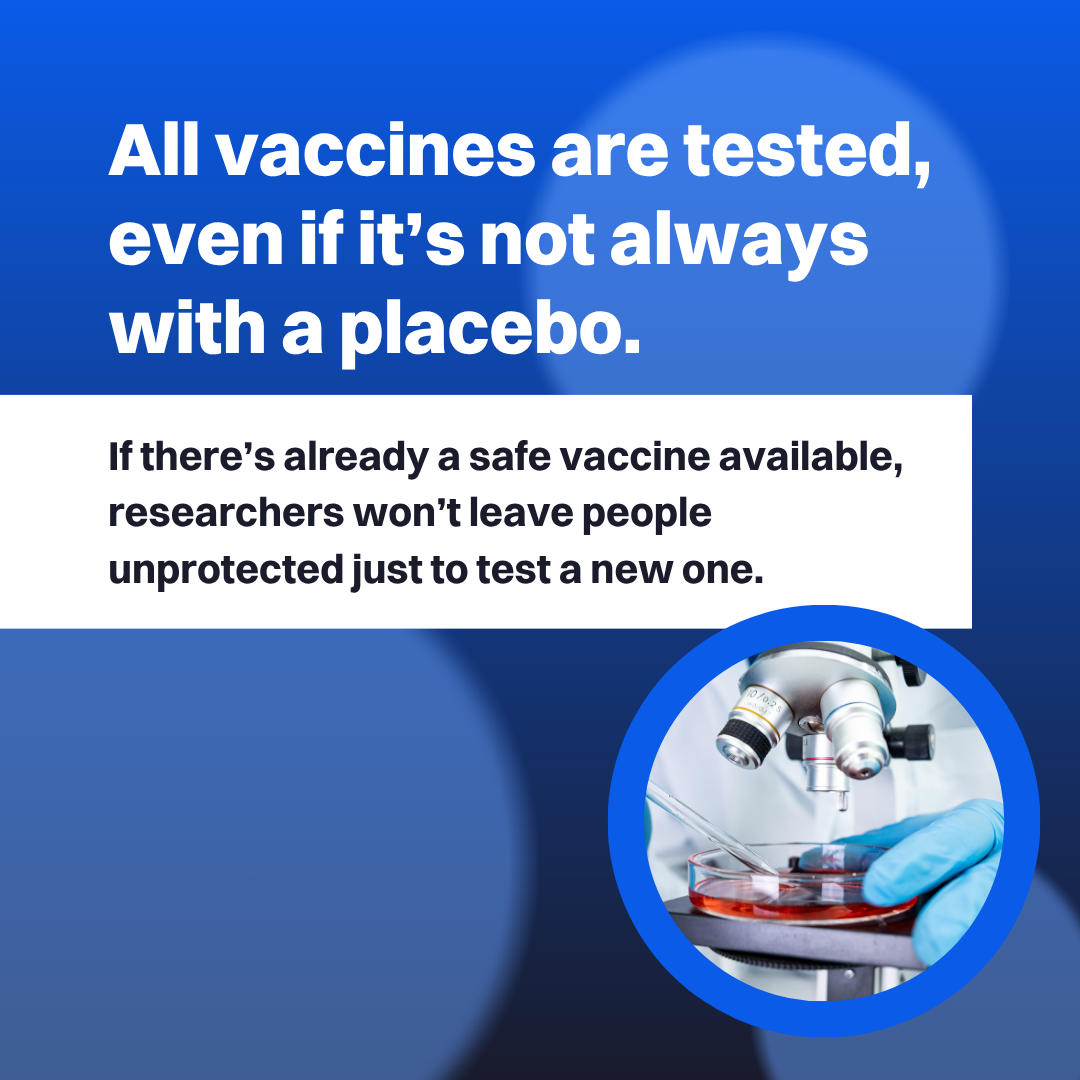Trust in official health guidance wanes as vaccine hesitancy grows
Online conversations about vaccines over the last month were colored by recent policy shifts at the Department of Health and Human Services and waning trust in health authorities. HHS’s plans to placebo-test all new vaccines, including updated flu and COVID-19 vaccines, were met with excitement from vaccine opponents and concerns about vaccine access from experts. Meanwhile, new research suggests that many have lost faith in formerly trusted sources of health information, including federal health agencies and health care providers. This distrust is highlighted by online backlash to calls to ensure children receive recommended routine immunizations like HPV and hepatitis A vaccines.
For even more resources, check out the menu above for real-time insights, training resources, and more. Specifically curated for people working in health care and public health, these links provide actionable content to help navigate today’s information landscape.
Trending narratives from the past month
HHS plan to placebo-test new vaccines sparks controversy
On May 20, FDA officials announced plans to require placebo-controlled clinical trials before approving updated COVID-19 vaccines for healthy individuals. This followed an April 30 HHS announcement that all new vaccines must undergo placebo-controlled trials, sparking debate about the ethics of placebo-testing vaccines when effective vaccines are available. Media coverage and social media posts about the new guidelines expressed concern about the impact on the availability of updated COVID-19 and flu vaccines. However, many prominent right-wing and anti-vaccine figures celebrated the news and falsely claimed that no vaccines are tested against a placebo. Several users called for a “full ban” on all mRNA-based vaccines. Read the fact checks here and here.
Surveys and online conversations reveal declining trust in doctors and vaccines
Two recent reports highlighted declining trust in health care providers and public health authorities in the last year. An Edelman Trust Barometer report released in late April found that adults across all age groups reported decreased trust in health care providers, particularly young adults. The survey found that 45 percent of people under 35 ignored health guidance from their doctor in favor of advice from a loved one, and 38 percent got health advice from social media. A few weeks later, KFF published a poll that found trust in federal health agencies as a source of health information declined, especially among left-leaning voters. Less than half of those polled expressed confidence in the FDA and CDC’s ability to ensure drug and vaccine safety or prevent disease outbreaks. Several online anti-vaccine accounts responded to the reports by claiming people no longer trust doctors who “push” vaccines on patients, and that COVID-19 vaccines destroyed the public’s trust in health care providers, health authorities, and “conventional medicine.” Read the fact checks here and here.
Myths circulate online about HPV and hepatitis A vaccines
In a viral post viewed over 10 million times, a social media user promoted misleading information about HPV vaccination for children, while claiming not to be anti-vaccine. The post repeated the misconception that children and teens should wait to get the vaccine until they are sexually active. Although many responses explained why HPV vaccination is recommended for children, other posts falsely suggested that HPV vaccines are dangerous, don’t prevent cancer, and promote harmful sexual behaviors. Meanwhile, Los Angeles County declared a hepatitis A outbreak on May 5, prompting social media users to doubt the effectiveness of hepatitis A vaccines, blame migrant and homeless populations, and accuse health officials and the media of fearmongering to promote vaccines. Other commenters claimed without evidence that hepatitis A vaccines caused the outbreak. Read the fact checks here and here.
What you might say in response
Health care providers and trusted health organizations are the best source for reliable vaccine information.
- Doctors recommend vaccines because they know they work and are the best way to keep their patients healthy.
- Vaccination protects against preventable diseases and reduces your chances of becoming seriously ill.
- Vaccines save millions of lives each year. Decades of research have proven them to be safe and effective.
Vaccines benefit everyone and are the best protection against preventable and highly contagious viruses like HPV and hepatitis.
- Vaccines only work if you get them before exposure to vaccine-preventable diseases. That’s why doctors encourage parents to vaccinate their children against diseases like HPV and hepatitis A as soon as they are eligible.
- The HPV vaccine prevents over 90 percent of cancers caused by HPV, the leading cause of cervical and anal cancers. The vaccine has dramatically reduced HPV rates in many countries, with some on track to eliminate the disease within a decade.
- Millions of children and teens worldwide have received HPV vaccines in the last 20 years with no serious safety concerns.
- Anyone can contract hepatitis A, although certain populations are at higher risk.
- Hepatitis A vaccination is recommended for all children over age 1 and adults at high risk of exposure.
All vaccines—old and new—are rigorously tested and monitored for safety.
- The anti-vaccine myth that vaccines are never tested against a placebo is false and meant to make people doubt vaccine safety. All vaccines are tested, and the types of safety testing vary based on the availability of existing vaccines.
- Vaccines undergo multiple rounds—and typically many years—of testing to ensure they are safe and effective.
- New vaccines may be tested against an older vaccine, rather than a placebo, if an effective vaccine is already available. For example, if a new measles vaccine is being tested, it would be unethical to give some children a placebo instead of the MMR vaccine, because that would put them at unnecessary risk of contracting measles.
What we’re reading
- Infodemiology.com: The public has unanswered questions about bird flu. Some are asking AI.
- NBC News: When measles struck, a surge of parents stepped up to vaccinate their children
- PBS News: How vaccine hesitancy may be driving a spike in pediatric flu deaths
- Annenberg Public Policy Center: Americans Say Benefits of MMR Vaccine for Children Outweigh Risks by Nearly 5-1
The Common Health Coalition recently launched the 2-4-2 Digest, a weekly snapshot that provides four key insights for health leaders and can be read in two minutes or with two swipes on your phone. Sign up for the next weekly edition.
Studies and trainings
- Cureus: Successful Interventions to Improve Pediatric Vaccine Uptake in Hesitant Cohorts: A Scoping Review
- Scientific Reports: Vaccination burnout impedes the compliance with multiple-dose administration of vaccines
Interested in learning more about how to debunk false claims with patients? Check out the new Infodemiology Training Program. In videos that range from 5 to 10 minutes each, the program introduces health care providers to the basics of infodemiology and provides you with actionable skills to help improve patient care. Get started today.
Quick response media assets
Below, we've provided a social media asset in English and Spanish. Use these assets on social media to fight false claims and help provide your network with accurate information. Just right-click the asset, or press and hold on mobile, to download.

Proposed social copy:
The U.S. has many systems in place to ensure vaccine safety. All vaccines undergo rigorous, lengthy safety trials, but not all are tested against a placebo—for good reason. Using a placebo to test a new vaccine when an effective vaccine already exists puts people at unnecessary risk.

Publicación propuesta:
EE.UU. tiene muchos sistemas establecidos para garantizar la seguridad de las vacunas. Todas las vacunas son sometidas a pruebas de seguridad rigurosas y prolongadas por una buena razón: Usar controles con placebo para probar una vacuna nueva cuando ya existe una vacuna eficaz arriesga innecesariamente a las personas.
The Health Care Infodemiology Brief is brought to you by PGP, the health care leadership of the Trusted Messenger Program, and infodemiology.com’s sponsors and partners.
